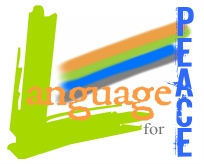The Anabaptist community is gearing up for a very meaningful time this summer with the Mennonite World Conference, where Mennonites and other Anabaptists from around the world will gather for several weeks this coming July for fellowship, worship and seeking God together.
The Mennonite World Conference sends out a newsletter in the months ahead of the event called the Courrier, and the April issue included an article by Arli Klassen entitled “It Takes a (Global) Village: Being the people God wants us to be.” (pgs 3-5)
The article in its entirety is a very thoughtful discussion on why the body of Christ needs the input of many different cultures and peoples, and how its richest form is found in the one that is diverse and intercultural. But I especially appreciated Klassen’s second point on the importance of language and of language diversity.
Consider this quote from pages 3 and 4:
“The first book of the Bible, Genesis, tells the story of the Tower of Babel. This story gives two reasons for all the diferent language groups. One reason is that unity based on sameness leads to pride, and the other reason is that unity based on sameness is a response to fear. In Genesis 11:4-6, we read that the people wanted to be famous and that they were afraid of being scattered. Both impulses are rooted in dependence in oneself instead of depending on God: “Look, they are one people, and they have all one language; and this is only the beginning of what they will do.” The theologian Walter Brueggeman says this is a story of people who wanted to be great because of their cookiecutter sameness – same language, same food, same clothes, same culture. There is a lot that can be accomplished in a homogeneous culture. Brueggemann suggests that God scatters the people to show them a better way. The unity God wants for the human race is diverse people drawn together by common faith and values, not drawn together by sameness in language and culture. Brueggemann says that the many languages and the scattering in this story are not a punishment, but are actually an opportunity to live up to the much greater potential God wills for the earth.”
Questions to ponder:
How can language learning enrich your faith community and your own faith on a personal level?
How can we better both celebrate well our own language and culture’s contribution to God’s Kingdom and the contribution of other languages and cultures?

Discussion
No comments yet.